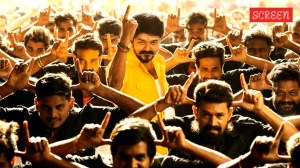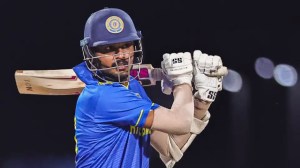Kathakali146;s Muslim voice no more
Kalamandalam Hyder Ali, the Kathakali music maestro whose sheer genius transcended the art form8217;s narrow religious confines, died in a ...

Kalamandalam Hyder Ali, the Kathakali music maestro whose sheer genius transcended the art form8217;s narrow religious confines, died in a road accident at Thrissur today.
Ali, 61, the one and only Kathakali musician from the Muslim community, had courted and braved many snubs, taunts and humiliation from both Hindu and Muslim fundamentalists, particularly during his initial years as a performer. For many years, the Muslim tag forbade him from performing in Hindu temples, where Kathakali is traditionally staged.
But soon enough, incredulity and opposition began giving way to admiration. Kathakali aficionados recall how those in control of an ancient temple in Chengannur actually broke down a part of the temple wall and erected a platform there for Ali to sing for the Kathakali performers inside the compound, since his Muslim identity barred him from being allowed inside.
Ali was born in an impoverished family of Vadakancherry of Thrissur. Driven by his passion for Kathakali music even when very young, Ali joined the celebrated Kerala Kalamandalam when he was 11 years old. That was unthinkable for a non-Hindu to do at the time, considering Kathakali music8217;s strong Hindu religious moorings.
His peers had often recollected young Ali8217;s brilliance even in the initial years, while he was learning classical Kathakali music along with sopanasangeetham, the musical rendering of poet Jayadeva8217;s highly devotional Geeta Govindam, which is normally performed only in front of the sanctum sanctorum of Hindu temples.
Ali8217;s skills were honed by legendary Kathakali artsts like Kalamandalam Nambeeshan, Kalamandalam Sivaraman Nair, Kalamandalam Gangadharan.
Those like his childhood friend and Kathakali legend Kalamandalam Keshavan say Ali8217;s greatest ambition was to sing at the famous Sri Krishna temple at Guruvayoor and the Sri Padmanabhaswamy temple at Thiruvananthapuram, both out of bounds for non-Hindus.
It was Ali and his inseparable friend Kalamandalam Sankaran Embranthiri who gave a Carnatic touch to Kathakali music. They started rendering Kathakali music in independent music programmes, without the visual background. Their innovation has since come to stay and there are now different audiences in Kerala keen to listen to Kathakali music alone, without visual performers.
Much to puritanic dismay, Ali, who had profound talent in both Carnatic and Kathakali music, had even gone farther to begin the practice of rendering pure Carnatic vocal with a strong Kathakali touch. This paved the way for scathing criticism from addicts of the old style who insisted that the musical element should always play second fiddle to the visual element.
8216;8216;The people who helped me, a destitute Muslim boy, were a Hindu and a Christian,8217;8217; wrote Hyder Ali in his biography.
If C P Antony had not come forward to stand surety for him at the time of admission at the Kerala Kalamandalam in 1957, Ali would never have studied music.
And when he passed out of the Kalamandalam and was hunting for jobs, if M K K Nair, the then chairman of FACT, had not offered him a job at the fine arts wing of the company, the world would never have known about him.
With bureau reports
- 01
- 02
- 03
- 04
- 05































